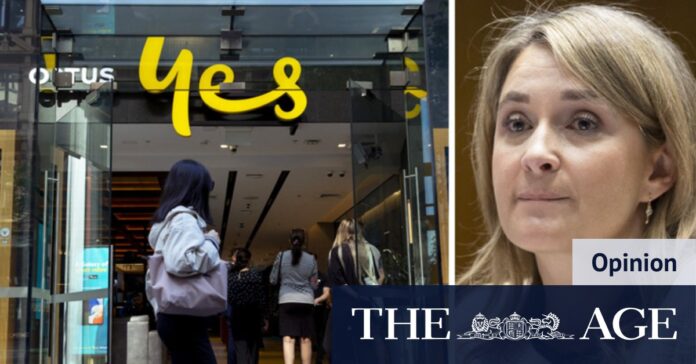[ad_1]
Also baffling was, yet again, the incitement of “complexity”, the imputation being that Optus customers and Australians more generally could not possibly understand. Not only insulting, such “complexity hubris” is damaging, undermining the very real fragility of all Australia’s critical infrastructure and the cascading effects an incident like this can have across the entire economy.
When DP World ports around Australia came to a grinding halt last week – the latest casualty of the relentless and invisible cyberwar being waged every day – it should have been another lightbulb moment. For the first time, the nation truly witnessed what a significant attack on critical infrastructure looked like and the potential impacts it could have right across the economy.
This time we were lucky – but luck runs out.
Loading
Just a week on and the attack seems like a distant memory. People forget quickly but, in our interconnected, digitally entwined world, set and forget is no longer an option. As Minister for Home Affairs and Cyber Security Clare O’Neil famously said in the wake of the Optus and Medibank breaches, the cyber slumber has to end.
Australia’s 2023-30 Cyber Security Strategy is due for release this week and is our nation’s third such strategy, a longer-term plan for building our national cyber resilience.
It draws a line in the sand about how serious government, business and citizens need to be about cybersecurity, presenting an ambitious blueprint for Australia’s cyber future. A future in which no one can fall asleep at the wheel and where every person plays a part in making Australia safer.
And, while the strategy includes an array of excellent initiatives that will make reporting, investigation and transparency of cyber incidents simpler and more streamlined, at its core is a “back to basics” ethos. An understanding that, if Australia is to be the most cyber secure nation in the world by 2030, cyber need not be “scary”: we just need to work together to get the basics right.
Loading
That is where this strategy really stands out. It is not about hype, nor is it about lulling Australians into a false sense of security. It is about shared responsibility, transparency and pragmatism, an understanding that in the dynamic world of cybersecurity, nothing will ever be perfect, but it can be done better.
Therefore, despite all the distractions, hype and “complexity”, the basics of cyber hygiene cannot be overlooked or replaced. They are the building blocks of our interconnected world and will help ensure Australia’s prosperous digital future.
Cybersecurity is no longer a “nice to have” – it is a high stakes consideration and getting it wrong has the potential to impact millions of Australians. Never has this been more starkly highlighted than by the Optus debacles and the ripple effect they had right across the economy, from lounge rooms to boardrooms. Private companies have a key role to play in the cyber puzzle, especially owners and operators of critical infrastructure.
There is an onus on them to work hand in glove with government to get cybersecurity right, and the new cyber strategy is the perfect reset.
Rachael Falk is the CEO of the Cyber Security Cooperative Research Centre and a member of the federal government’s expert advisory board for Australia’s 2023-30 Cybersecurity Strategy.
Get a weekly wrap of views that will challenge, champion and inform your own. Sign up for our Opinion newsletter.
[ad_2]
Source link



